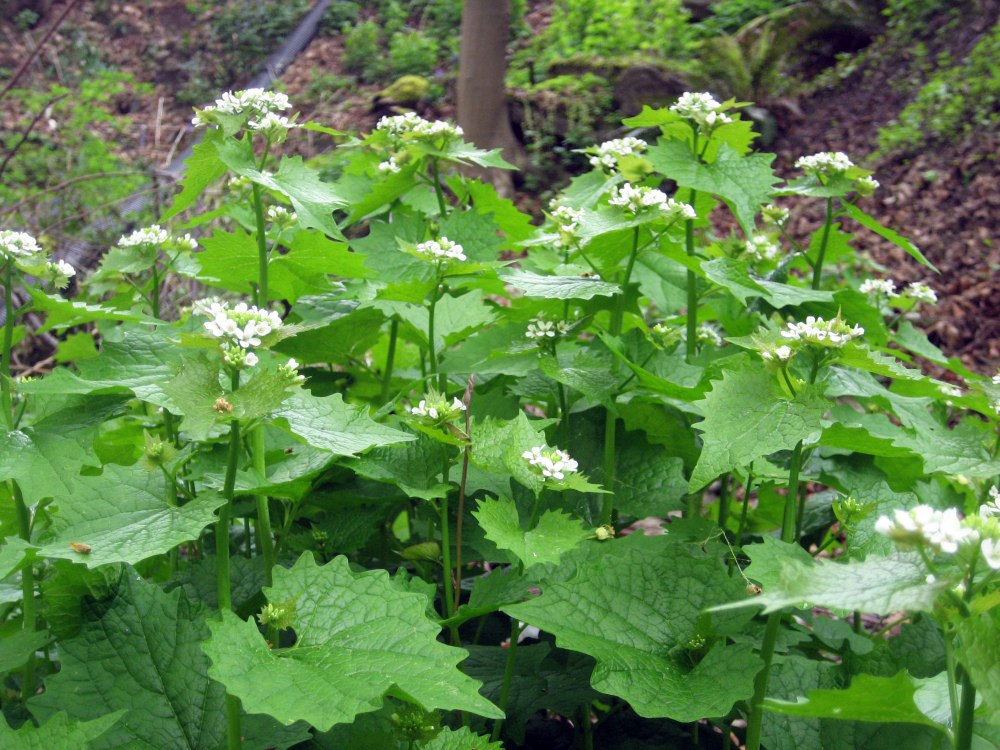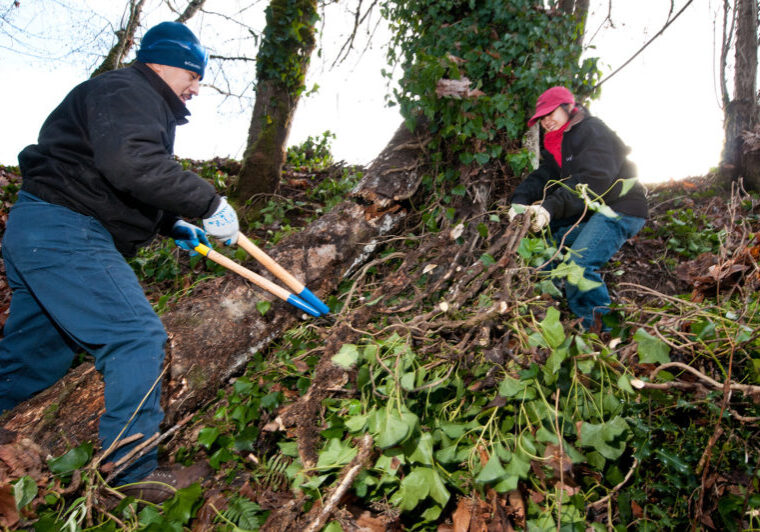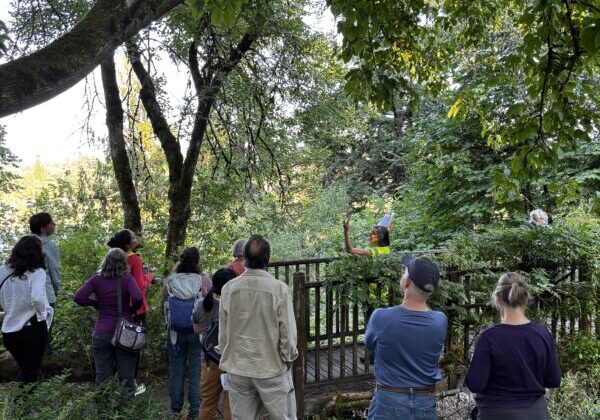Spring is just around the corner, and that means it’s time to start thinking about the weeds that might be popping up in your yard this year. While some kinds of weeds might be an unsightly nuisance, there are others that need special and urgent attention as they pose a huge risk to ecosystem health.
Garlic mustard is one of those high priority invasive weed species. It is an aggressive herb that displaces other plants by monopolizing light, moisture, nutrients, soil, and space. It also releases chemicals into the soil that are toxic to other plants and are particularly harmful to soil fungus which is vital to native plants. This noxious weed impacts sensitive natural areas as well as suburban landscapes, and all known populations in our district are targeted for removal.
Garlic mustard has few known locations in the Pacific Northwest and urgent action is needed to prevent it from gaining a foothold. Without immediate attention, this noxious weed will become a very serious threat to our native ecosystems.
West Multnomah Soil & Water Conservation District is working with landowners to identify and manage infestations. We are asking for assistance from local landowners and residents – important stewards of the land – to help us locate and manage this invasive plant by allowing us to come to your property to remove or kill all known infestations.
We offer FREE landowner assistance to manage this invasive plant before it becomes established and too difficult to contain. It is critical that infestations be treated each year before seedset to prevent it from flourishing and spreading. Seed pods will form quickly so your timely attention is appreciated!
If you have Garlic mustard on your property, we can treat it for you at no cost to you. Contact Michelle Delepine, Invasive Species Program Coordinator, with questions or to grant us access your property: michelle@wmswcd.org or 503-238-4775, ext.115. West Multnomah staff greatly appreciate the opportunity to work with you!
Learn more about treating Garlic mustard in this fact sheet in English, and en Español.
Special thanks to the Oregon State Weed Board for providing funding for this important program.



